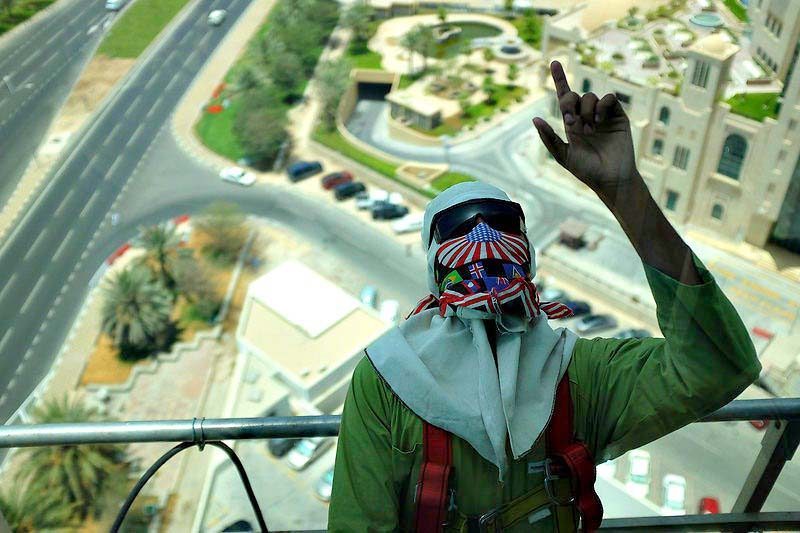



All photos by Chantelle D’mello
A new art exhibition depicting the iconic Arabian horse, as seen through the eyes of two of the region’s most acclaimed female artists, has opened at the Souq Waqif Art Center.
The installation – titled Asalat Khail, or Thoroughbred – features veteran Qatari artist Jameela Al Shraim and renowned Palestinian painter Rima Al Mozayyen.
In total, 34 paintings are showcased in two of the center’s galleries, focusing on horses as both a reflection of local society and as representations of peace and progress.

Chantelle D'mello
A; Shraim’s work
Al Shraim, an art graduate from Qatar University, is best known for her sculptures and paintings illustrating the country’s long-standing equine culture.
After finishing school in 1988, she taught art for 22 years and became well known both in Qatar and abroad, showcasing her work at numerous international and regional exhibitions.
Speaking to Doha News, Al Shraim said that the installation – which was originally part of a 2014 exhibition at the Porta Coeli International Art Gallery in Italy – was based on her fondness for horses, which began as a child.
“I love watching the horses at Shaqab and when I paint, I paint emotions and feelings as horses. I see horses as people, and (project) these emotions and issues onto them, and onto my paintings,” she said.
Qatari attitudes toward art
Al Shraim said she launched her career at a time when the country was much more conservative and lacked an arts scene.
“When I started painting, there were no materials here. I had to paint on wood because they had no canvas. We didn’t have oil paints, so I would mix cooking oil with other colors to make my paints.
(Back then), society was different, people were more closed minded. It was difficult for Qatari artists to market themselves … People didn’t know about us. We didn’t even write our names on our artwork,” she said.
She added that in recent years, Qatari social attitudes have shifted to become more accepting of women in public spheres. Today’s artists, she said, are encouraged and supported by numerous local organizations.
Al Shraim’s daughter echoed her mother’s views on the changing cultural landscape, saying:
“Today my mom is seen. She’s on Al Rayyan TV and in the newspapers. Everything is changing. The way men are thinking is changing, and they are becoming more supportive of their own family members – like wives or sisters – becoming artists. Women are slowly being allowed to follow their passions, and my mother is an example of that.”
The exhibition also features the work of Palestinian contemporary artist Al Mozayyen.

Chantelle D'mello
Al Mozayyen’s work
In her most recent exhibition in Cairo, titled I’m Not a Doll, Al Mozayyen tackled heavyweight issues such as female genital mutilation, rape, child marriage and domestic violence.
For the purposes of the display at the Souq Waqif Art Center, however, her mixed-medium works focuses on the themes of Arab identity and courage through the lens of the Arabian horse.
Both artists’ paintings are for sale. Al Shraim’s paintings retail from between QR1,000 and QR25,000, while Al Mozayyen’s work is priced between QR15,000 to QR35,000.
The exhibition is open daily from 8am to 10pm.
Thoughts?
(The post Painting with cooking oil: Renowned Qatar artist recalls early challenges is from Doha News.)


















































































